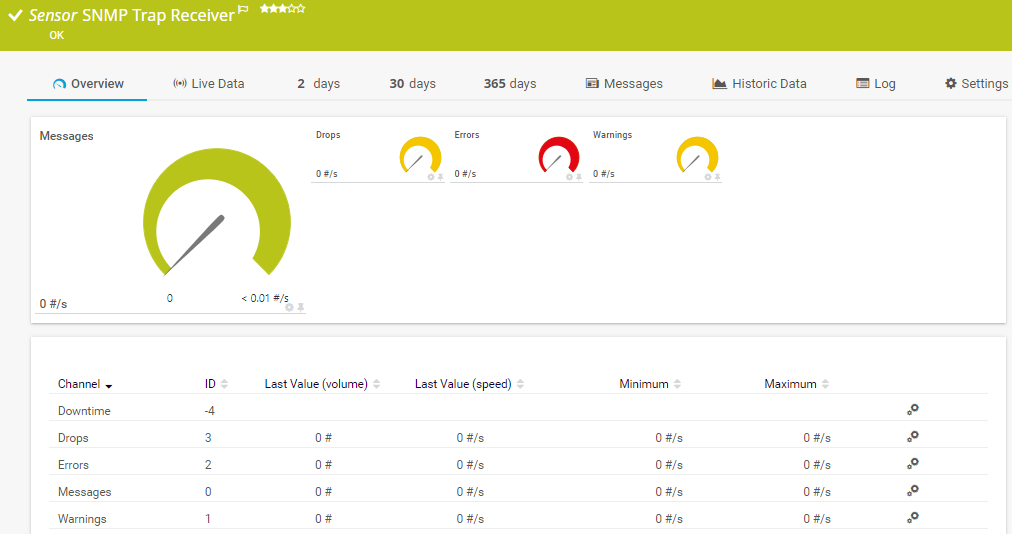
Select this option if you want WhatsUp Gold to listen for SNMP traps.

You can also set up WhatsUp Gold to fire an Action when a trap is received for a device. WhatsUp Gold records the trap in the device's SNMP Trap Log. There are no adverse effects to disabling the Windows SNMP Trap service unless you are running another SNMP solution on the ipMonitor server that requires the Windows SNMP Trap service.WhatsUp Gold has an internal SNMP trap handler, which when enabled, listens for and accepts SNMP traps. Disable the Windows SNMP Trap service from the Windows Control Panel interface.Change the ipMonitor SNMP Trap Listener port to an unused port, and then change the outbound port of all the SNMP agents sending traps to ipMonitor.To resolve conflicts with the Windows SNMP Trap service, perform one of the following procedures: Both services are bound by default to port 162. If the Windows SNMP Trap service is enabled on the ipMonitor host computer, this service may conflict with the ipMonitor SNMP Trap Listener. If the SNMP Trap Listener is not enabled, SNMP trap monitors will not work, even if the monitor is enabled. Port 162 is the standard SNMP listening port.Īny SNMP agent that is expected to send traps to ipMonitor must be configured to send traps to the IP address and port specified here. ipMonitor listens to every IP address on the port.įor example, enables ipMonitor to listen on every IP address assigned to the machine on port 162 using HTTPS. To monitor all IP addresses on a specific port, enter an IP address of 0.0.0.0. Each incoming trap is parsed and compared to the settings of the existing SNMP trap monitors to determine whether the application should trigger an information alert action.Īll SNMP trap monitors you create in ipMonitor use the IP address and port combination that you enter in the SNMP Trap Listener section to listen for incoming SNMP traps.

This monitor listens for SNMP traps received by any SNMP agent in your monitored network.

The SNMP - User Experience Trap monitor is an event-based, non-polling monitor.


 0 kommentar(er)
0 kommentar(er)
